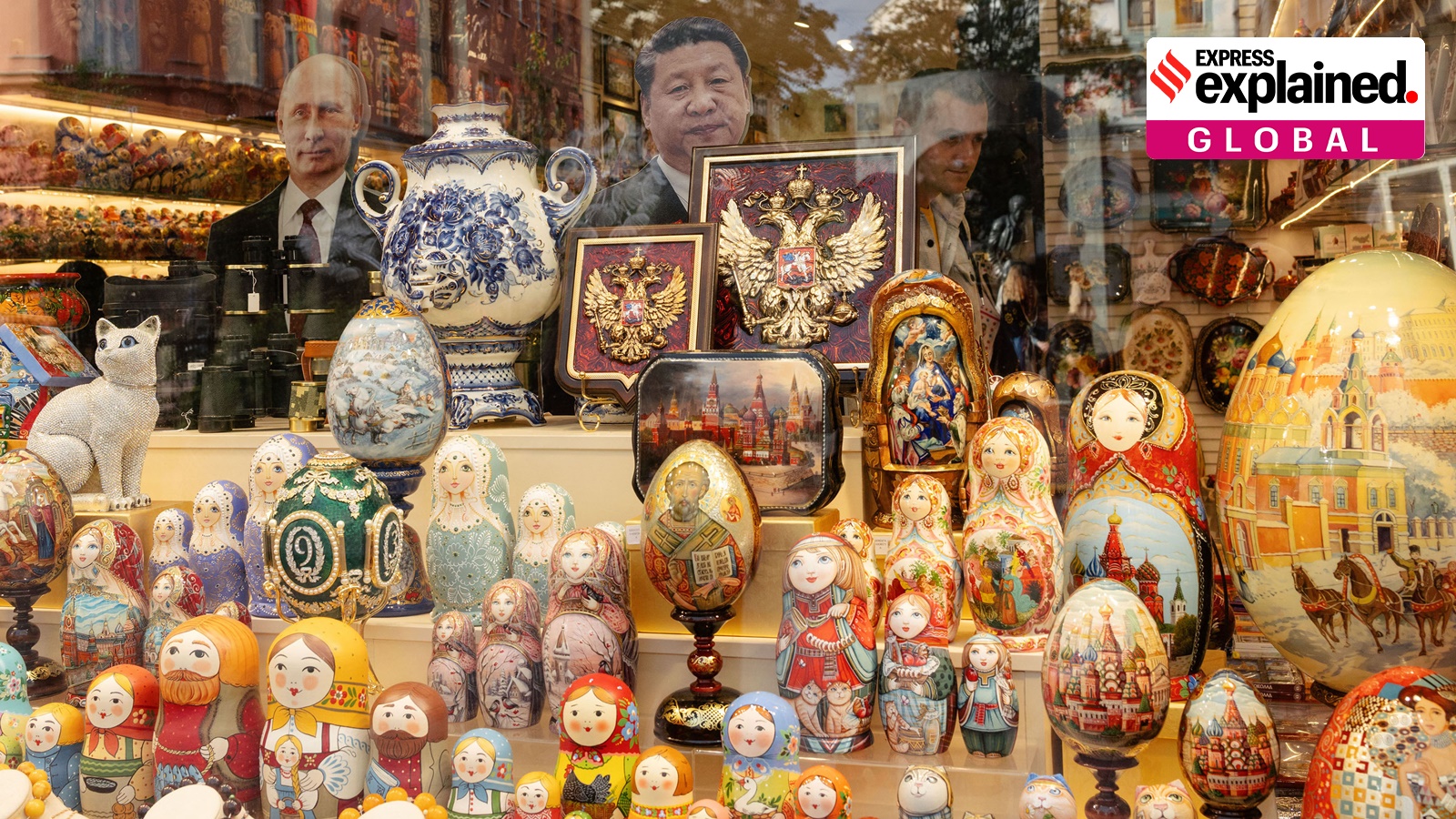How Xi Jinping uses summit, parade and history to flaunt China’s global pull
Xi now appears vindicated for standing by Putin, and analysts say the leaders will use the summit in Tianjin to promote a vision of a world less dominated by the United States.
 A souvenir shop with cutouts of Russia's president, Vladimir Putin, and China's top leader, Xi Jinping, in Moscow, June 22, 2025. (Nanna Heitmann/The New York Times)
A souvenir shop with cutouts of Russia's president, Vladimir Putin, and China's top leader, Xi Jinping, in Moscow, June 22, 2025. (Nanna Heitmann/The New York Times)Xi Jinping could hardly have scripted a more favorable moment. This weekend, the leaders of India and Russia will join him at a security summit in China — one leader pushed away by President Donald Trump’s tariffs, the other brought out of isolation by his embrace.
For Prime Minister Narendra Modi of India, U.S. tariffs on Indian goods have raised doubts about leaning too heavily on Washington. For President Vladimir Putin of Russia, his red-carpet treatment in Alaska by Trump blunted Western efforts to punish him for the invasion of Ukraine.
At the center is Xi, turning America’s alienation of India into an opportunity, and finding validation for his own long alignment with Putin.
The summit of more than 20 leaders, mostly from Central Asia, followed by a military parade in Beijing, is not just pageantry. It shows how Xi is trying to turn history, diplomacy and military might into tools for reshaping a global order that has been dominated by the United States.
“The success of Xi’s foreign policy strategy is reflected in the parade of leaders traveling to China,” said Jonathan Czin, a fellow at the Brookings Institution who previously worked at the CIA analysing Chinese politics.
Xi, Putin and Modi are attending the summit of the Shanghai Cooperation Organisation, a Eurasian security group led by China and Russia, in the eastern city of Tianjin on Sunday and Monday.
On Wednesday, Xi will preside over a military parade in Beijing commemorating the 80th anniversary of the end of World War II — portraying the conflict as a triumph led by the Communist Party. (Many historians, however, believe it was the Chinese Nationalists who did most of the fighting.)
Until recently, Beijing’s closeness to Moscow had drawn pressure from Washington. But that tension appears to have eased in part because of a warming of ties between the United States and Russia. Trump lavished praise on Putin in Alaska this month and later echoed the Kremlin’s position that Ukraine needed to cede land to bring an end to the war.
Xi now appears vindicated for standing by Putin, and analysts say the leaders will use the summit in Tianjin to promote a vision of a world less dominated by the United States.
- 01
- 02
- 03
- 04
- 05






































